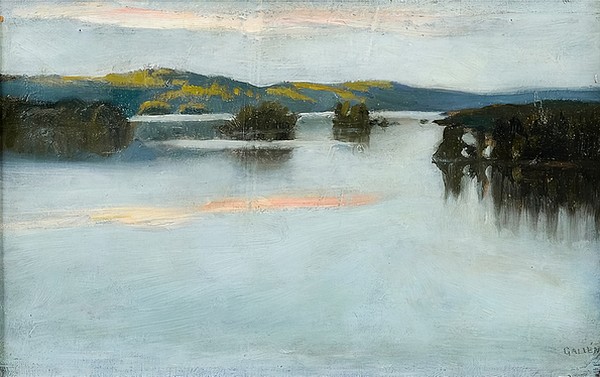
For several months, the theme of Liederabend's cover has been the twilight. I'm aware that I should have changed it already, but I didn't find time to stop and think about what could be next, after I had dedicated it to roses, insomnia, nightingales, travels or serenades, for example. Some topics are difficult to put on the cover because at least seven songs need to talk about them, while there are others that could have a second edition without repeating the previous songs, as is the case with twilight. And I could add this week's song, Richard Strauss's Am Ufer, one of his lesser-known works; when you listen to it, you'll tell me if you wouldn't like to hear it in a recital.
Strauss most prolific phase, in terms of Lied, runs from 1887 to 1905. It is roughly framed by the first meeting with soprano Pauline de Ahna, with whom he would marry, and the premiere of Salome. It was during this period, in 1899, when he composed Am Ufer [At the shore], a Lied he published as part of opus 41; it is the third of the five songs in the collection and shares with the first, the well-known and beautiful Wiegenlied, the poet Richard Dehmel. In this case, the poem is included in his most controversial collection, Weib und Welt, which was reported to several courts for obscenity and blasphemy. The book was published in 1896, and Strauss wrote his Lied in the midst of the judicial storm, the same year that Arnold Schönberg wrote his Vier Lieder, Op. 2, also with poems by Weib und Welt.
The three stanzas of Am Ufer, with three verses each, describe the moment when everything becomes silent and the day leaves and the night arrives. It is not clear whether the poetic voice is alone on the shore or if it is accompanied, or if she addresses herself or someone else when she speaks in the second; the atmosphere has the transcendent and mysterious air that often accompany poems about this moment of the day. Strauss emphasizes, above all, the meditative state, and he almost stops time. The score bears the time signature Sehr langsam und feierlich [Very slowly and solemnly]. The accompaniment consists of chords, one for each measure, throughout practically the entire song; it only changes twice: with the word Blut [blood] in the first verse of the poem, and in the last stanza, when a star emerges from the waters, which is the climax of the song.
The chords reinforce the solemnity Strauss requires, but they also bring movement to the song, going from the lowest to the highest extreme of the keyboard. I said earlier that the composer stops time, and now it seems like I'm contradicting myself. I hope the song will be explained on its own when you listen to it. As for the singer, he has a complex role. She has to control her breathing and tuning very accurately because there are many long sentences and wide leaps. Am Ufer is one of those songs that, if the performers are not at their best, can make us suffer a lot.
Christiane Karg and Malcolm Martineau are not the case, I find they achieve the perfect atmosphere with their interpretation. Listen to them, and then you tell me.
Die Welt verstummt, dein Blut erklingt;
in seinen hellen Abgrund sinkt
der ferne Tag,
er schaudert nicht; die Glut umschlingt
das höchste Land, im Meere ringt
die ferne Nacht,
sie zaudert nicht; der Flut entspringt
ein Sternchen, deine Seele trinkt
das ewige Licht.
The world falls silent, your blood begins to resound;
into its bright abyss sinks
the distant day,
it does not cringe; the glow embraces
the highest land, in the sea wrestles
the distant night,
the night does not falter; from the floodwaters springs forth
a little star, your soul drinks
the eternal light.
(translation by Sharon Krebs)


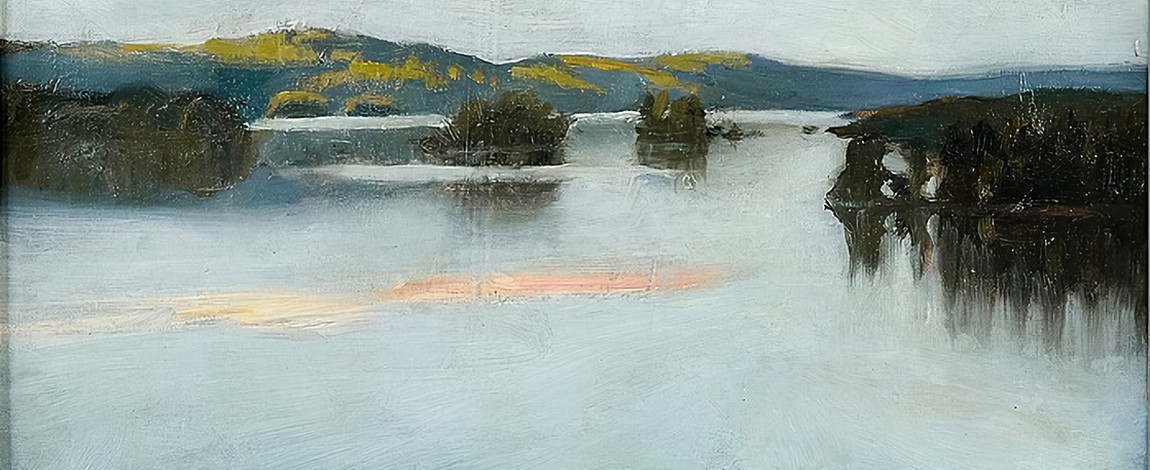
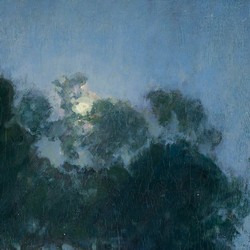
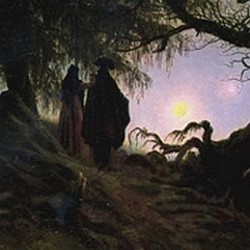
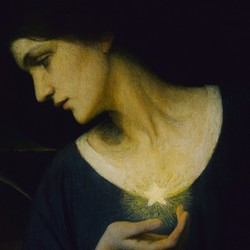











Comments powered by CComment